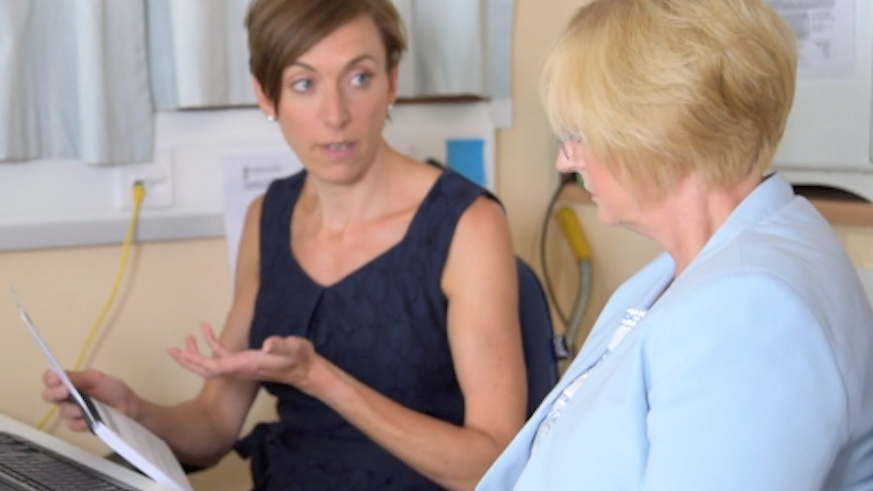International multi-centre collaboration to investigate treatment approaches in multiple sclerosis
1 June 2019

DELIVER-MS: Determining the Effectiveness of Early Intensive Versus Escalation Approaches for the Treatment of Relapsing-Remitting Multiple Sclerosis is an international multi-centre collaboration to investigate treatment approaches in multiple sclerosis.
The DELIVER-MS study is a 24-centre study being undertaken across the UK and US which aims to investigate two different treatment approaches in MS. The study is designed to show if starting on a high efficacy treatment from the outset, improves outcomes for people with MS. Currently it is unclear whether this approach is better or worse than an ‘escalation’ approach where people start on a moderate efficacy drug, and only move onto stronger (higher efficacy) treatments if it is necessary to control their MS disease activity. Some people believe that an ‘escalation’ approach might be safer by preventing some of the more worrisome side-effects of high-efficacy MS treatments.
The DELIVER-MS study is recruiting people with relapsing-remitting MS who have not previously received any disease-modifying treatment and who have experienced their first symptoms within the last 5 years, mirroring regular clinical practice. A total of 400 people with MS will be enrolled into a randomized study, and a further 400 into an observational study. Those in the randomized part of the study will be told which initial therapy approach their neurologist should take, but their neurologist and the patients together will be free to decide which medication within that approach they choose. Participants in the study will be followed for a total of 3 years during which time they will undergo MRI scans, clinical and neuropsychological assessments, and self-report on treatment satisfaction and other outcomes.
MS is a leading cause of non-traumatic disability in young adults, but the progression of the disease is highly variable. Advances in recent years have led to there being over a dozen treatments available for MS that can be effective at stopping relapses and slowing the accumulation of disability. However higher efficacy treatments are associated with greater risks of more serious side-effects, and no data currently exist to guide treatment choices and decide which treatment is best for different people.
Dr Emma Tallantyre, Clinical Senior Lecturer in the Division of Psychological Medicine and Clinical Neurosciences is Principal Investigator at Cardiff and a co-applicant in obtaining funding for the study, “This study is testing the effectiveness of treatment algorithms rather than individual treatments. It means the results will help to guide overall treatment philosophy and will be applicable not only to a wide range of existing therapies, but also to new therapies.
Data from the DELIVER-MS study will help weigh up the potential benefits and risks of starting with high efficacy treatments. The study will meet a significant unmet need in patient decision making and help develop guidance for patients and neurologists on the use of existing and new treatments”.
Read more about the study here.